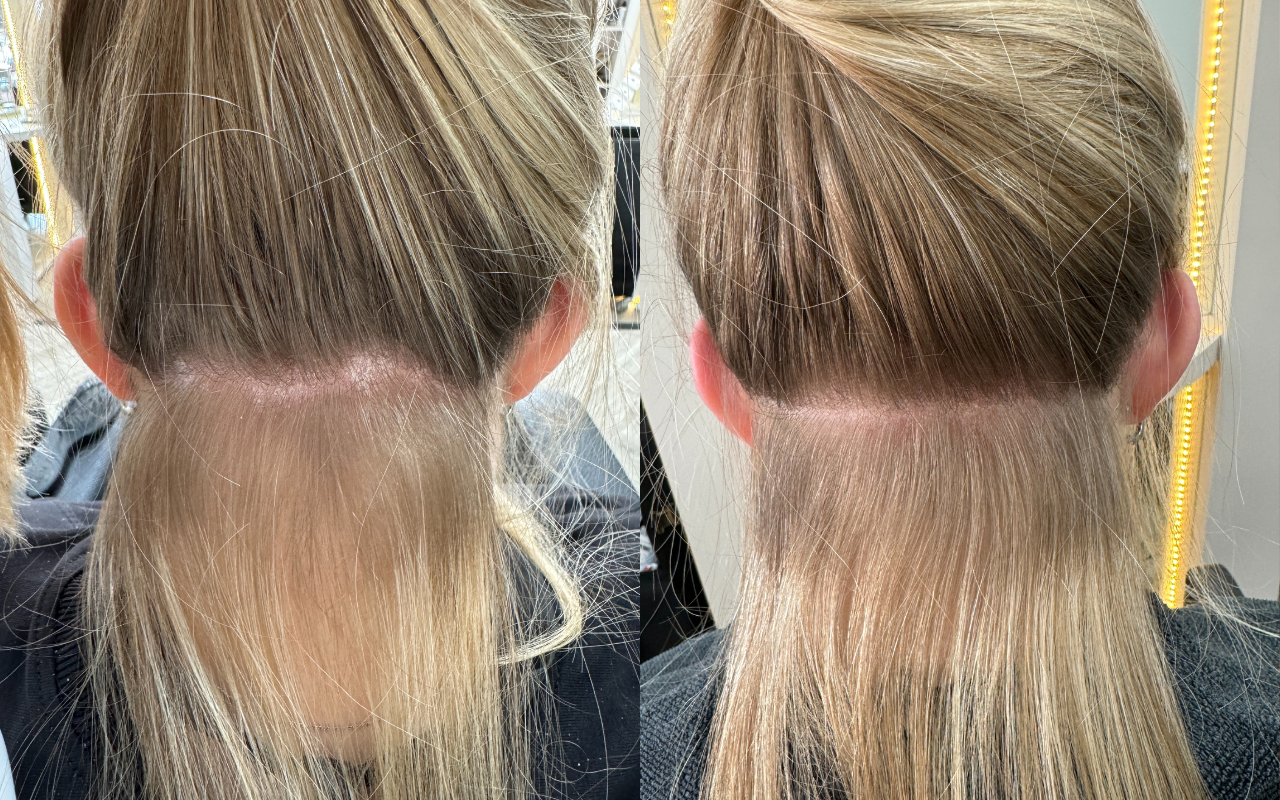At CENTRED, we know that beautiful, healthy hair is not just about the right products; it's also about overall well-being. Stress is a common concern that can impact both your hair health and your life. That's why we're here to share some of the latest research-backed practices and techniques to help you reduce stress and support your journey to luscious locks. So let's first take a look at the mechanisms at play between stress and hair loss.
What is cortisol?
Cortisol is a hormone that is produced by the adrenal gland in response to stress. It is often referred to as the "fight or flight" hormone because it prepares the body to respond to stressful situations. Cortisol plays a vital role in regulating many body functions, including blood sugar levels, blood pressure, and immune system responses.
What is the link between cortisol and hair loss
Research has shown that cortisol can contribute to hair loss in several ways. When cortisol levels are elevated due to chronic stress, it can lead to a condition known as telogen effluvium. This condition occurs when hair follicles enter a resting phase prematurely, causing hair to fall out in large amounts.
Cortisol can also disrupt the balance of other hormones in the body, including testosterone and estrogen. These hormones play a significant role in hair growth and maintenance. When their levels are altered, it can lead to hair loss.
In addition, cortisol can cause inflammation in the body, including the scalp. Inflammation can damage hair follicles and prevent them from producing new hair, leading to hair loss.
What you need to know about hair loss
If you are experiencing hair loss, it is essential to identify the underlying cause. While cortisol can be a contributing factor, there may be other factors at play. Genetics, hormonal imbalances, and medical conditions can all lead to hair loss.
If you suspect that stress is contributing to your hair loss, there are several steps you can take to manage your stress levels. Engaging in regular exercise, practicing relaxation techniques such as yoga or meditation, and getting adequate sleep can all help to reduce stress and cortisol levels.
It is also important to maintain a healthy diet that is rich in nutrients that support hair health, such as vitamins B, C, D, and E, iron, and zinc. Additionally, you may want to consider using hair care products that are specifically designed to support hair growth and health.
Stress Management: A Vital Hair Recovery Tool
Effective stress management is a critical aspect of preventing hair loss and supporting hair recovery. Here's why:
Balanced Hormones: By reducing stress, you can maintain a healthier hormonal balance, which is crucial for hair growth.
Improved Blood Circulation: Stress management techniques like relaxation exercises and deep breathing can help increase blood flow to the scalp, promoting hair health.
Enhanced Well-Being: Managing stress doesn't just benefit your hair; it improves your overall quality of life, contributing to a sense of well-being and contentment.
At CENTRED, we know that beautiful, healthy hair is not just about the right products; it's also about overall well-being. Stress is a common concern that can impact both your hair health and your life. Here are some of the latest research-backed practices and techniques to help you reduce stress and support your journey to luscious locks.
1. Mindfulness Meditation:
One of the most researched stress-reduction techniques is mindfulness meditation. Taking just a few minutes each day to be present in the moment can help lower cortisol levels (the stress hormone) and bring a sense of calm. Find a quiet spot, focus on your breath, and let go of the worries of the day. It's a small practice that can yield big results.
2. Exercise and Movement:
Regular physical activity is a fantastic stress-buster. Whether it's a brisk walk, a yoga session, or a high-intensity workout, exercise releases endorphins, the body's natural mood lifters. Plus, it improves blood circulation, benefiting your hair health. So, don't forget to move your body, and your hair will thank you for it.
3. Aromatherapy:
Aromatherapy isn't just about pleasant scents; it can also have a profound impact on your stress levels. Scents like lavender, rose, and chamomile have been shown to promote relaxation and reduce anxiety. Consider using essential oils or scented candles to create a soothing environment.
4. Sleep Hygiene:
Quality sleep is crucial for managing stress. Research suggests that sleep deprivation can increase stress levels. Ensure you have a relaxing bedtime routine, a comfortable sleep environment, and aim for 7-9 hours of quality sleep each night.
5. Social Connections:
Don't underestimate the power of social connections. Engaging with friends and loved ones can provide emotional support, reduce feelings of isolation, and boost your mood. It's a simple yet effective way to combat stress.
6. Deep Breathing Exercises:
Deep breathing techniques, such as the 4-7-8 method, can calm your nervous system and reduce stress. Inhale for a count of four, hold for seven, and exhale for eight. It's a quick and easy practice you can do anywhere, anytime.
7. Healthy Nutrition:
A well-balanced diet rich in nutrients can help your body cope with stress better. Incorporate foods like leafy greens, fatty fish, and whole grains, and limit caffeine and sugary snacks, which can exacerbate stress.
8. Self-Care Rituals:
Taking time for self-care is essential for stress reduction. Whether it's a warm bath, reading a book, or applying our En-Root Scalp Oil and massaging your scalp, these rituals are your sanctuary in the midst of daily stressors.
9. Digital Detox:
Having a rest from social media and phone/screen use at least in the evenings can really help to bring you back to alignment with your self and reduce the amount of stressors you are exposed to and consuming on a daily basis.
Remember, managing stress is a personal journey. What works for one person may not work for another. It's about finding the techniques that resonate with you and incorporating them into your daily life. By nurturing your mental and emotional well-being, you're not only reducing stress but also supporting your hair health. After all, beautiful hair starts from within and being centred is a journey, not a destination.





